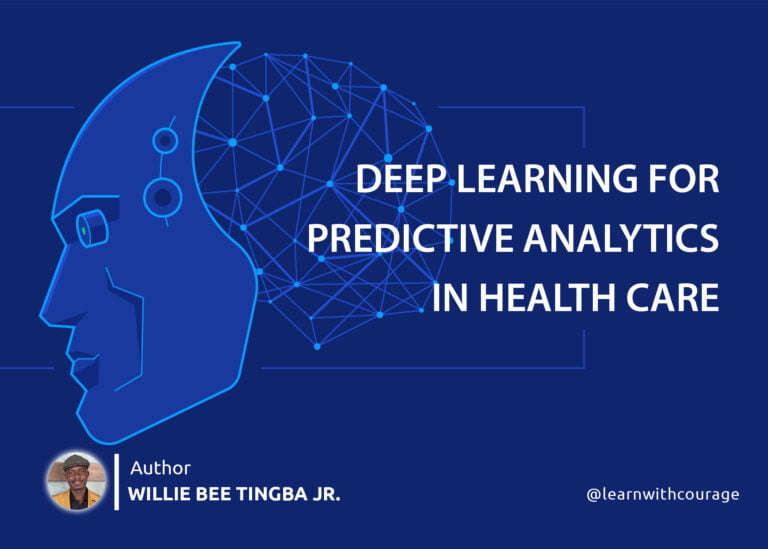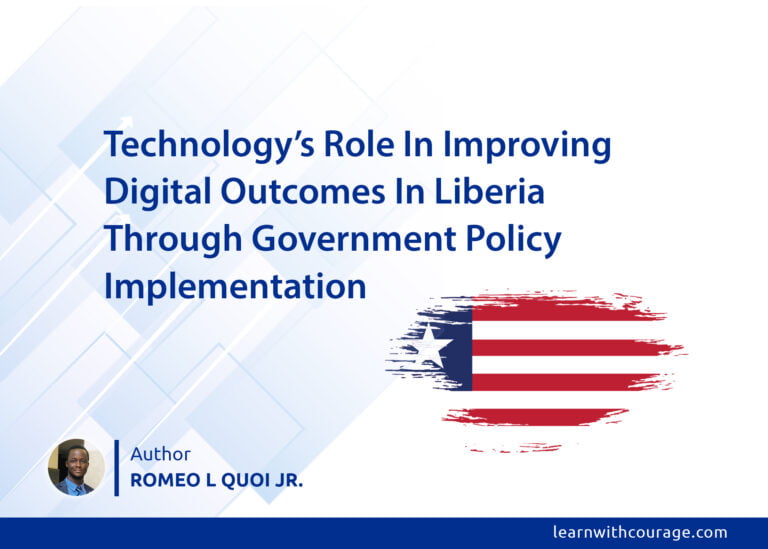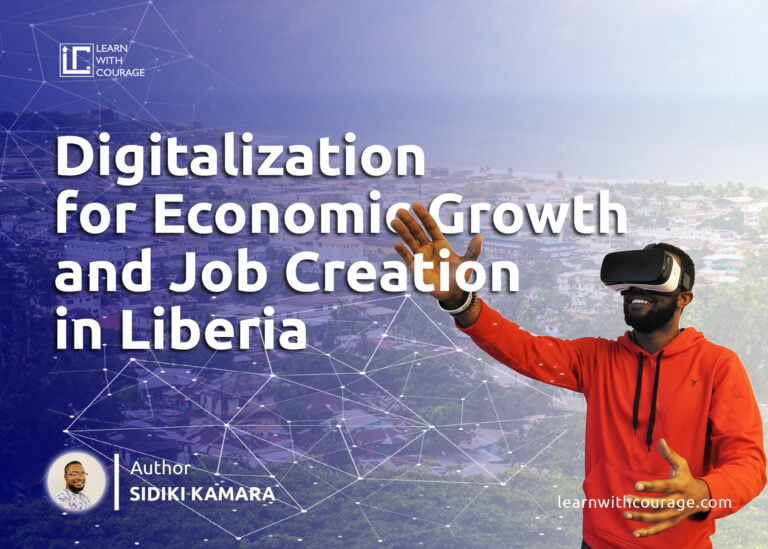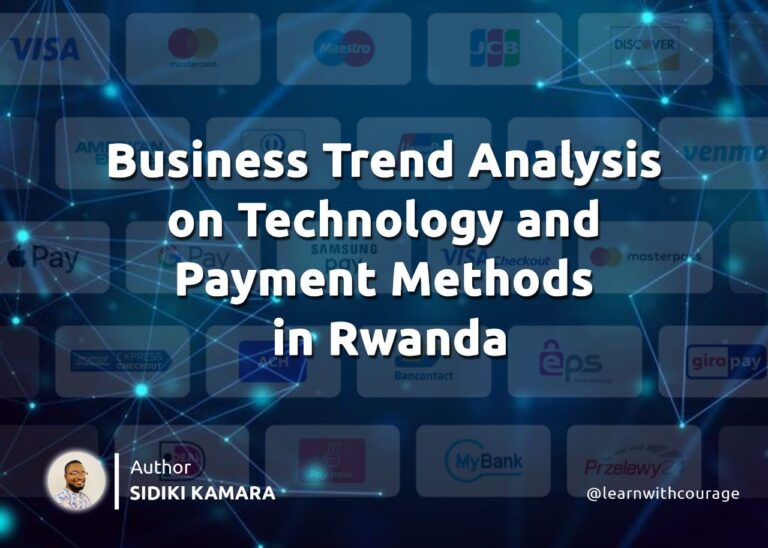Digital Revolution in Financial Services of Developing Countries
Introduction
The digital revolution in financial services began in the late 1980s and early 1990s with the introduction of online banking and automated teller machines (ATMs). This allowed customers to access their accounts and perform basic banking transactions without having to visit a physical branch. In the mid-1990s, the Internet began to revolutionize financial services.
Online stock trading, mutual funds, and other investments became available to individual investors. Banks began offering online bill payment services, allowing customers to pay bills without writing checks or visiting a branch. The 2000s saw the emergence of mobile banking, which allowed customers to access their accounts from anywhere using their smartphones. This was followed by the development of peer-to-peer (P2P) payment systems such as PayPal and Venmo, which allowed users to send money directly from one person’s account to another’s.
In recent years, financial technology (fintech) companies have emerged that offer innovative products and services such as robo-advisors, cryptocurrency exchanges, and blockchain-based payments. These companies are disrupting traditional banking models by providing more convenient and cost-effective solutions for consumers. The digital revolution in financial services is ongoing and will continue to shape how we manage our money in the future.
Background of Digital Revolution in the Financial Sector
The digital revolution in financial services is transforming the way people access and use financial services in developing countries. This revolution is driven by the proliferation of mobile phones, internet access, and other digital technologies. These technologies are enabling people to access financial services more easily and quickly than ever before. In developing countries, digital financial services are providing access to banking, insurance, payments, investments, and other financial products and services.
For example, mobile money platforms such as M-Pesa in Kenya have enabled millions of people to send money quickly and securely without having to visit a bank branch or use cash. Similarly, digital payment platforms such as Paytm in India have enabled people to make payments online without using cash or credit cards.
The digital revolution is also making it easier for people in developing countries to save money. Digital savings accounts allow users to save money securely online without having to visit a bank branch or use cash. In addition, digital investment platforms such as Acorns in the US are allowing users to invest small amounts of money into stocks and bonds with minimal effort. Finally, the digital revolution is also making it easier for people in developing countries to access credit. Digital lending platforms such as Kiva are allowing users to borrow small amounts of money from lenders around the world with minimal effort.
This has enabled millions of people who would otherwise not have access to credit due to their lack of collateral or credit history to borrow money for their businesses or other needs. Overall, the digital revolution is transforming the way people access and use financial services in developing countries by providing them with more convenient and secure ways of accessing banking, insurance, payments, investments, savings accounts, and credit products and services.
Tools Driving Digital Transformation in the Financial Service Industry
The digital revolution in financial services has been driven by the emergence of new technologies such as artificial intelligence (AI), blockchain, and cloud computing. These technologies have enabled financial institutions to offer more personalized services, improved customer experience, and increased efficiency. AI-driven automation has allowed banks to process transactions faster and more accurately, while blockchain technology has enabled secure and transparent transactions.
Cloud computing has enabled financial institutions to store data securely and access it from anywhere in the world. Additionally, mobile banking apps have made it easier for customers to manage their finances on the go. All of these advances have helped to make financial services more accessible and convenient for customers.
The Digital Revolution in Global Financial Inclusion
Increasing access to finance, reducing the cost of digital transactions, and channeling wage payments and social transfers through financial accounts will be crucial to mitigating recent economic setbacks in developing countries World Bank Blogs, (2022). There are a number of ways in which governments and the private sector can help further this transformation. Globally, the poor are suffering from high inflation, slow economic growth, and food shortages. Today’s multiple crises have already resulted in dramatic reversals in development and a substantial increase in global poverty, on top of the unequal effects of COVID-19 (World Bank Blogs, 2022).
Positively, the COVID-19 crisis led to unprecedented changes in industries with a high digital component (McKinsey, 2020). The digital revolution has increased access and use of financial services in developing economies, transforming the way people make and receive payments, borrow, and save.
The most recent Global Findex database, which was created using data from a poll of more than 125,000 adults in 123 economies and covers the use of financial services in 2021, glaringly shows these shifts (World Bank Group, 2023). According to the survey, 71% of adults in developing economies now have a formal financial account, up from 42% in the first edition of the database published a decade ago.
These accounts can be with a bank, another regulated institution like a credit union or microlender, or a mobile money service provider. Additionally, the gap between the percentage of men and women who own accounts in developing nations has shrunk for the first time, from 9% percentage points to 6% (World Bank Group, 2023).
The public and private sectors can both contribute to the advancement of this transition in a number of essential areas (Malpass, 2022). They must first create an atmosphere with supporting operational and policy conditions. Payments can be made between different financial institutions and mobile money service providers, for instance, by enabling system interoperability.
The mobile phone system is significantly more vital to enhancing financial access than the conventional banking system. The expansion of digital finance requires inexpensive, effective mobile devices and accessible internet. To promote honest and ethical business practices that increase confidence in the financial system, stable laws and consumer protections are also required (Malpass, 2022).
According to Global Findex data for 2021, 865 million people in developing economies opened their first bank account to receive government funds. People who received payments into an account were more likely to use their accounts to make payments and access other services, which helped build the digital financial ecosystem (World Bank Group, 2023). Thus, governments can assemble credible social registers and detect gaps and overlaps by using digital payments.
Many private firms will be able to pay their employees and suppliers electronically as digital payments proliferate and become more affordable, and they should (Malpass, 2022). The advent of the digital age presents an opportunity to boost employment in the formal sector without unduly burdening compliance. Digital payments can aid in extending the revenue base during a period of tighter budgetary restrictions by lowering tax evasion and avoidance (Malpass, 2022).
The Benefits of Digital Services
Digital financial services can bring a lot of benefits to businesses. One of the key benefits is that paper documents are no longer required to be printed and stored. Read carefully, and make a smart decision in the future.
1. Freedom
You always have a digital financial management system with you. You can go about your daily business and review reports wherever and whenever it suits you. All you need is a computer or mobile device with an internet connection.
Ease and efficiency
You can forget about piles of paper when you manage your finances digitally. Several typical tasks can be completed more quickly or even entirely automatically. Invoice receiving and sending are two examples of this type of work. No longer must you open envelopes or send invoices via postal mail. A single mouse click can complete any task. This allows you to concentrate on more crucial duties, and it also helps you save money.
Flexibility
Flexible collaboration and communication with your accountants are made possible by digital systems. It is simple to change and reassign different duties. Flexible and convenient methods of communication include face-to-face meetings, phone calls, emails, and video conferences.
Environmental friendliness
Digital systems lessen the requirement for printing and the consumption of paper. Digital channels allow for the distribution of information, reducing the need for physical deliveries and the associated emissions.
The World Bank is dedicated to using digitization to increase financial inclusion. They will continue to assist nations as they improve their mobile phone networks, rewrite laws to make it easier to access money, embrace e-government tools, and update their social security systems. They must step up their efforts to connect the many millions of people who still do not have accounts to the financial system, help them develop economic resilience, and realize the rewards of inclusion.
According to Mekki, those who are poor or low-income and are shut out of the banking sector must meet a variety of financial obligations in order to manage their personal and professional lives. These are typically limited to current accounts, she continued. “Yet, this is not enough on its own. If this population is to benefit from the opportunities that will shape its future and increase its resilience, it must have access to credit, savings, and insurance services that fulfill its needs.
Conclusion
The digital revolution has radically transformed the landscape of financial services, particularly in developing countries. The emergence of online and mobile banking, P2P payment systems, and fintech innovations has democratized access to financial services, making them more efficient and cost-effective. This digital transformation is not only reshaping how individuals manage their finances, but it’s also fostering financial inclusion by extending essential services to previously underserved populations. As digital technologies continue to evolve, we can expect further advancements that will redefine the future of financial services globally.
We’d love to hear your thoughts on this digital revolution. How do you think digital technologies are influencing financial services in your country? Are there any specific fintech innovations that have caught your attention? Please share your views in the comments section below. Your insights can help us all understand the nuances of this digital transformation in financial services.
References
Malpass, D. (2022a, July 12). Aiding the digital revolution in global financial inclusion. World Bank Blogs. https://blogs.worldbank.org/voices/aiding-digital-revolution-global-financial-inclusion#:~:text=The%20digital%20revolution%20offers%20a,reducing%20tax%20avoidance%20and%20evasion.
Malpass, D. (2022b, July 12). Aiding the digital revolution in global financial inclusion. World Bank Blogs. https://blogs.worldbank.org/voices/aiding-digital-revolution-global-financial-inclusion#:~:text=The%20digital%20revolution%20offers%20a,reducing%20tax%20avoidance%20and%20evasion.
McKinsey. (2020). How COVID-19 has pushed companies over the technology tipping point—and transformed business forever. McKinsey & Company. https://www.mckinsey.com/capabilities/strategy-and-corporate-finance/our-insights/how-covid-19-has-pushed-companies-over-the-technology-tipping-point-and-transformed-business-forever
World Bank Blogs. (2022, July 12). Aiding the digital revolution in global financial inclusion. World Bank Blogs. https://blogs.worldbank.org/voices/aiding-digital-revolution-global-financial-inclusion#:~:text=The%20digital%20revolution%20offers%20a,reducing%20tax%20avoidance%20and%20evasion.
World Bank Group. (2023, January 27). The Global Findex Database 2021. World Bank; World Bank Group. https://www.worldbank.org/en/publication/globalfindex







